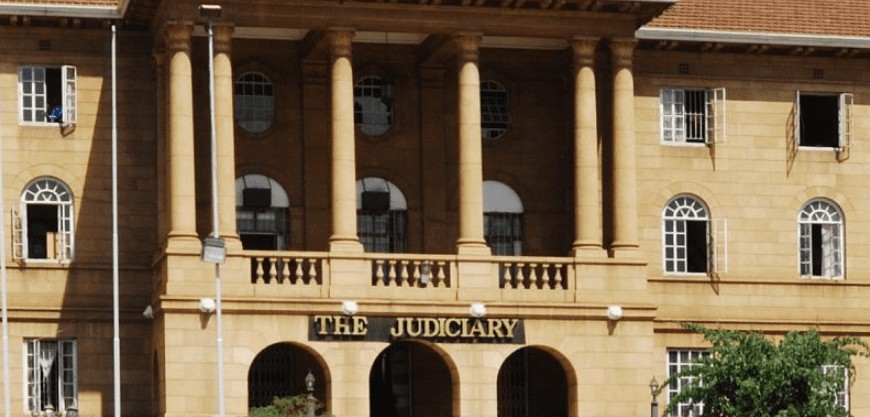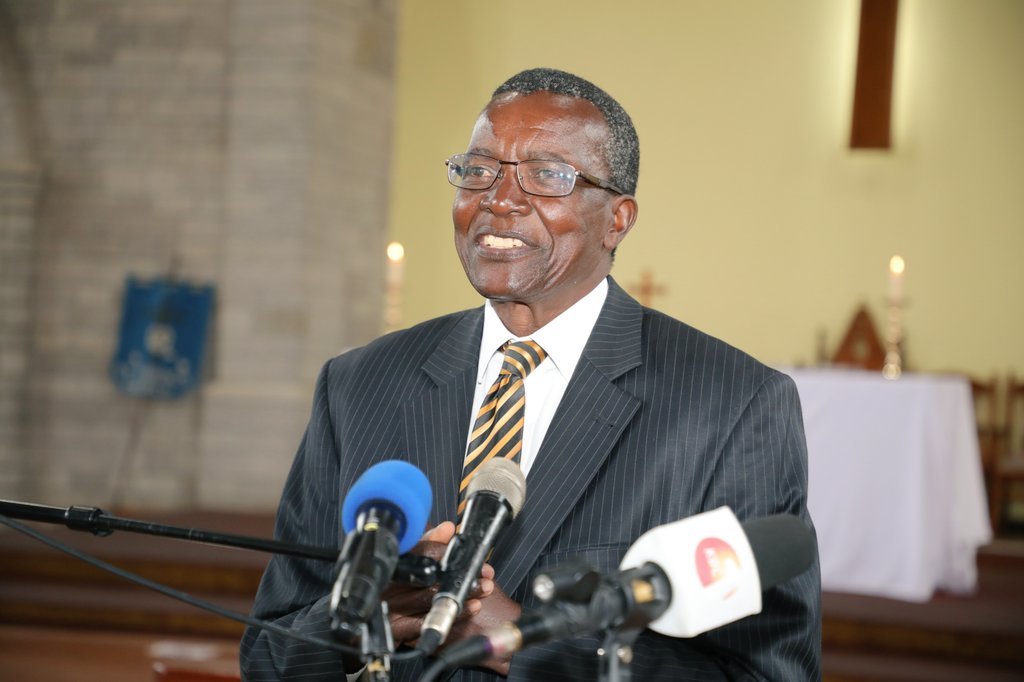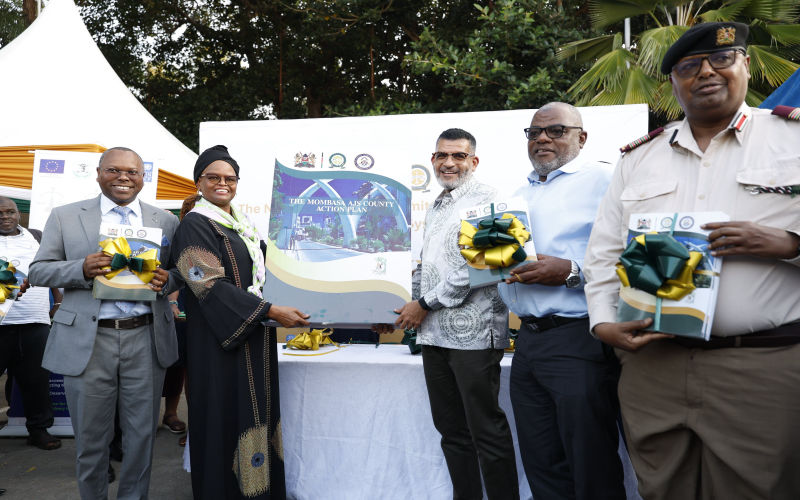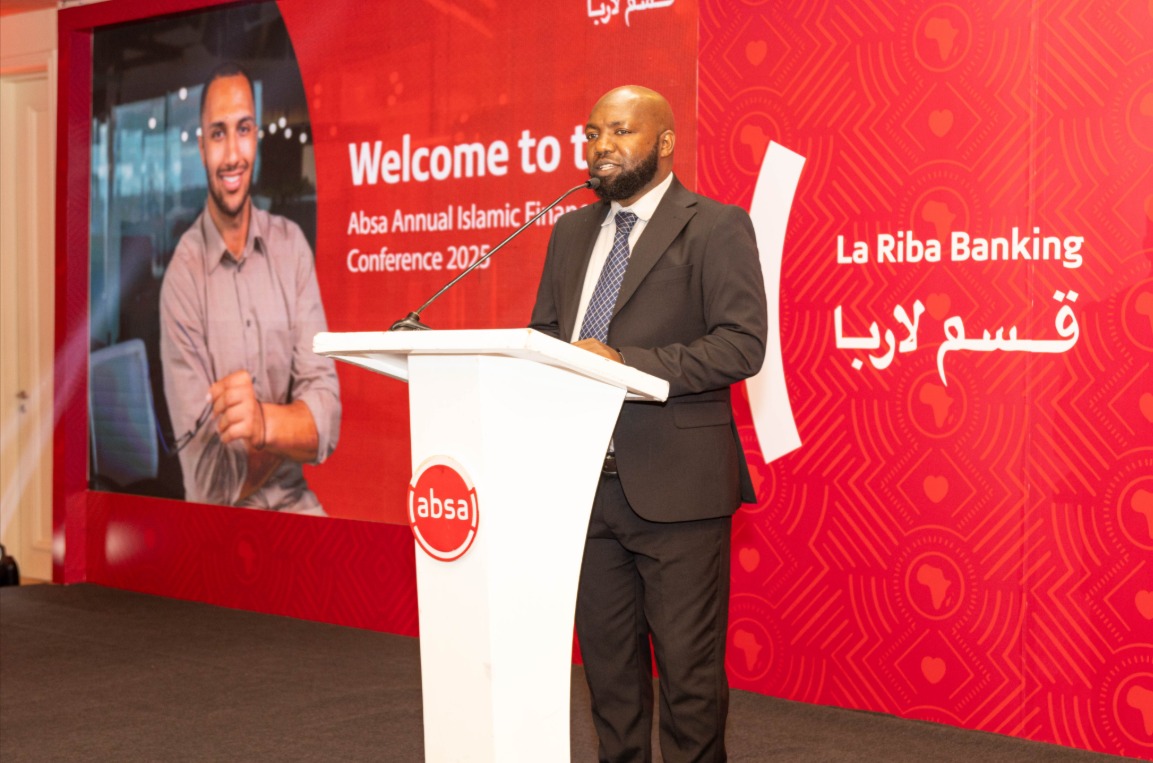Kenya secures Sh22 billion loan from Japan to boost industry, cut power bills
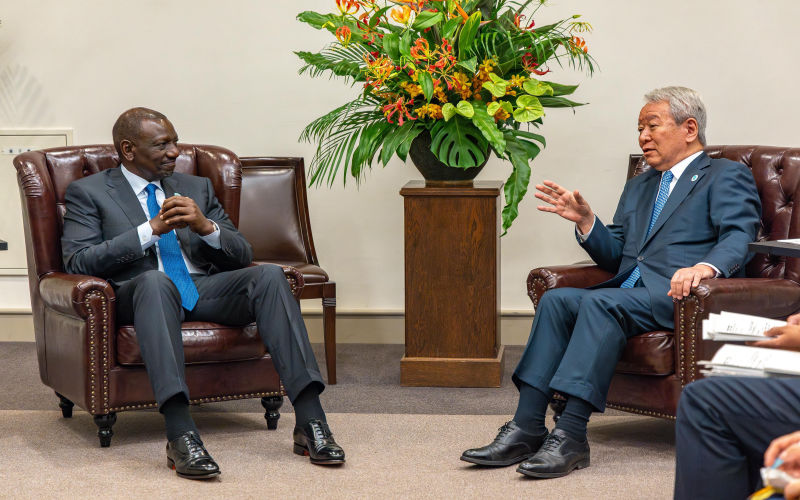
Prime Cabinet Secretary Musalia Mudavadi signed the deal on behalf of Kenya, while Mr Atsuo Kuroda, Chairman and CEO of Nippon Export and Investment Insurance (NEXI), represented Japan.
In a bid to accelerate Kenya’s industrial growth and reduce electricity costs, the government has secured a 25 billion Yen (Sh22 billion) Samurai financing facility from Japan.
The agreement was signed on the sidelines of the Ninth Tokyo International Conference on African Development (TICAD 9) in Yokohama, Japan, in a ceremony attended by President William Ruto and Japanese Prime Minister Shigeru Ishiba.
More To Read
- ‘Africa is poised for progress’ Guterres tells development conference in Japan
- Kenya and Japan sign yen-denominated loan deal to boost development, cut borrowing costs
- President Ruto courts Japan, seeks balance in uneven trade
- Kenya to only approve donor projects with secured funding, aligned to national priorities - Treasury CS Mbadi
- BAK slams Prof Makau Mutua’s call to ban boda bodas in major towns and cities
- Japan sets new internet speed record at 1.02 petabits/second
Prime Cabinet Secretary Musalia Mudavadi signed the deal on behalf of Kenya, while Mr Atsuo Kuroda, Chairman and CEO of Nippon Export and Investment Insurance (NEXI), represented Japan.
“This unique Samurai financing facility will promote our transformative program to stimulate the entire automotive value chain, foster linkages with other sectors, and promote innovation, research and development,” Mudavadi said.
He added that the facility would also strengthen Kenya’s energy sector by cutting transmission and distribution losses, which currently average 23 per cent of national output.
“It will further improve access to affordable, reliable power by reducing losses in electricity transmission and distribution,” he noted.
Under the financing structure, the Ministry of Investment, Trade and Industry will receive 15 billion Yen (Sh13.1 billion) to support local vehicle assemblers and parts manufacturers, scale up electric vehicle production, and reduce importation of used cars and spares. The package also includes technical education and training to prepare Kenyan youth for jobs in the emerging green automotive industry.
The Ministry of Energy will access 5.5 billion Yen (Sh4.8 billion) to purchase and install high-efficiency transformers, addressing power system inefficiencies and cutting consumer bills. The remaining 4.5 billion Yen (Sh3.9 billion) will support general government expenditure to ease fiscal pressures.
“This facility demonstrates our proactive approach to diversifying funding sources and reducing reliance on traditional borrowing channels,” Mudavadi said.
He further highlighted that the partnership aligns with Kenya’s Bottom-Up Economic Transformation Agenda (BETA) and will reposition the country as a hub for clean mobility and affordable energy in the region.
The Samurai facility has a seven-year maturity period. The National Treasury will sign an agreement with NEXI to facilitate credit access for the ministries of Investment, Trade and Industry and Energy.
President Ruto, speaking at the TICAD 9 plenary session, renewed his criticism of international financial institutions, saying Africa is often penalised through unfair credit ratings that make financing expensive and unsustainable.
“The current global credit rating system often overlooks Africa’s unique economic realities, unfairly penalising our countries during periods of global distress. This must change,” he said.
He further endorsed proposals for an Africa Credit Rating Agency to complement reforms in global rating systems, arguing that progressive reforms are essential to unlock affordable, predictable and sustainable financing for development.
Beyond financing, Ruto urged African leaders to deepen intra-continental trade. Citing UNCTAD data, he noted that less than 18 per cent of Africa’s exports are traded within the continent, compared to over 60 per cent in Europe and Asia.
“By all credible estimates, under the African Continental Free Trade Area, intra-African trade could surge by up to 50 per cent by 2035. This would generate immense wealth, create millions of decent jobs, expand opportunities for SMEs, and open new markets for African goods and services,” he said.
The President also highlighted agriculture as Africa’s greatest untapped sector, employing over 60 per cent of the population and contributing nearly a quarter of GDP.
“This is not a failure of potential, but of investment, infrastructure, and integration,” he said.
In other agreements signed on the sidelines of TICAD 9, Kenya signed a Letter of Intent and Concept Note with Japanese pharmaceutical firm Shionogi & Co. Ltd to accelerate access to Cefiderocol, a vital antibiotic for bacterial pneumonia, supported by the Global Antibiotic Research and Development Foundation.
Additionally, the Kenya Industrial Research and Development Institute entered a cooperation deal with Japan’s Ministry of Economy, Trade and Industry to boost human resource development, skills, and technology transfer in industrial innovation. Japanese Prime Minister Shigeru Ishiba proposed an Economic Region Initiative of Indian Ocean-Africa to strengthen trade ties between Japan and the continent.
Top Stories Today










